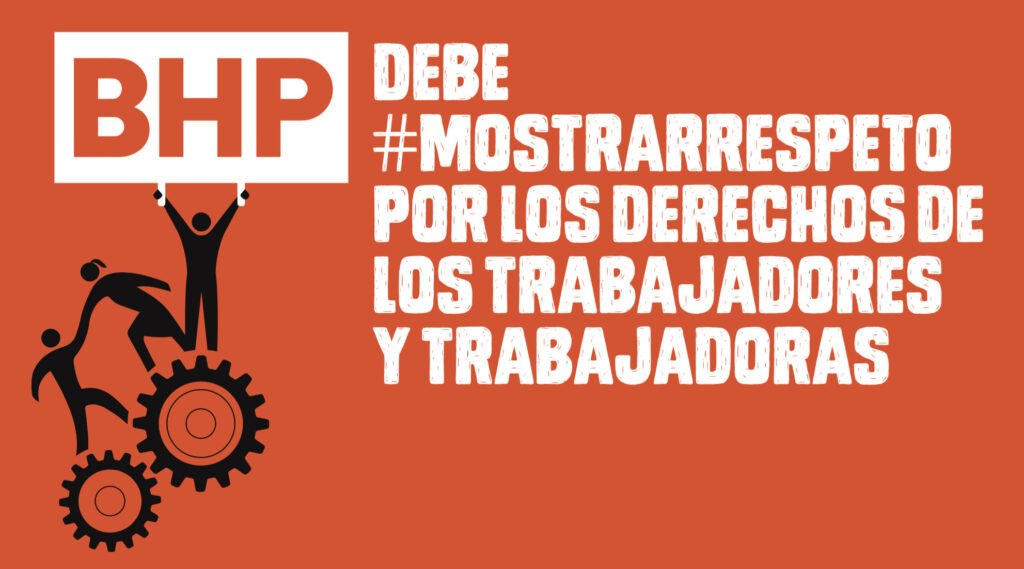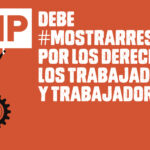Read this article in:
English
13 August, 2020In the midst of the coronavirus pandemic, which has hit Latin America particularly hard, BHP workers in Chile, Colombia and Peru came together for an online workshop on occupational health and safety. The aim was to provide tools to help them to safeguard their right to a safe workplace.
The online workship was held as part of IndustriALL Global Union's global campaign to get multinational BHP to show respect for workers' rights. At the latest regional meeting in May, workers from Chile and Peru raised questions about BHP's response to the Covid-19 pandemic, so IndustriALL arrtanged training on occupational health.
"It's important to talk about health and safety in relation to the pandemic. There are numerous safety issues in Latin America’s. And some mining companies have taken advantage of the situation to bring in changes that wouldn't have been possible under normal circumstances. Work conditions in the mining sector have become more precarious, and BHP is no exception,"
said Laura Carter, IndustriALL's deputy regional secretary and regional director of the mining sector.
Union representatives from Colombia also took part in the workshop, along with the workers from Chile and Peru. Representatives from all three countries said that cases continue to rise in the mines in their countries. Igor Díaz López, president of Sintracarbón in Colombia, said:
"Initially, we had two cases at Cerrejón, and now 200 miners have been infected. The company has manipulated the data about the number of cases and does not implement the necessary protocol when positive cases are reported."
Sergio Cruz and José Pineda, workers at Antamina in Peru, also said that even after an employee passed away from Covid-19, the number of infections continued to increase sharply. In some mining units, infection rates currently stand at 70 per cent, but the company is still prioritizing output over the lives of its workers.
Gustavo Tapia and Nelson Pérez, from Minera Escondida in Chile, added that safety appeared not to be a priority for the mining companies in their country. Although BHP had removed workers over the age of 60 and those with pre-existing health conditions from its facilities, it had ramped up production, which was detrimental to health and safety. And the situation is even more difficult for contracted workers.
During the online workshop, the BHP workers listened to presentations by Kemal Özkan, assistant general secretary at IndustriALL, Glen Mpufane, the director of the mining sector, and Brian Kohler, the director of sustainability and a health and safety expert. Their presentations covered IndustriALL's coronavirus response, the need to apply ILO Convention 176 on Safety and Health in Mines during the pandemic, Covid-19 risk assessments, and the role of health and safety representatives with regard to union representatives.
Glen Mpufane stated that:
"The mining sector is the epicentre of Covid-19. That's why we need to put pressure on companies to apply Convention 176, which sets out preventive and protective measures, and the responsibilities of employers, employees and their representatives.
In our campaign, we say that the stronger the union, the safer the mine. If the union is weak, it cannot help to ensure that health and safety standards are met. We need to strengthen unions and train union members on the challenges we face in Latin America."
Özkan concluded:
"The circumstances may have totally changed because of the pandemic. But the attacks on workers' rights continue. We are campaigning for health and safety to be recognized as a fundamental right of workers. We also continue to fight for justice in all BHP workplaces."


